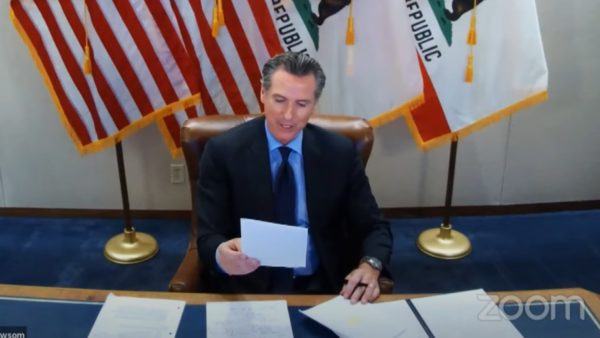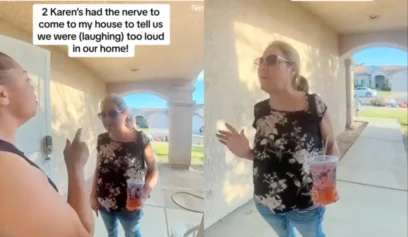California made history this week by becoming the first state government to adopt a law that will require a task force to develop proposals for providing reparations to descendants of slavery.
Gov. Gavin Newsom signed Assembly Bill 3121 on Wednesday to force the state to confront the legacy of the state’s racist past and the resulting disparities that persist today. The task force created by the law will make recommendations to the state legislature about who should be eligible to receive reparations.
“This is not just about California, this is about making an impact, and a dent, across the rest of the country,” Newsom said.

Nine members to be appointed by the governor and state legislative leaders will examine the history of slavery in the state and analyze the impact that discrimination against freed people and their descendants has had as it relates to wealth, health, education, and incarceration.
Advocates of the bill hope that it will spark other movements around the country that seek to amend the painful legacy of slavery.
Newsome said the passage of the law symbolizes “a paradigm that we hope will be resonant all across the United States.”
The new law comes as the nationwide momentum behind the Black Lives Matter movement remains at the forefront of public discourse.
“California has come to terms with many of its issues, but it has yet to come to terms with its role in slavery,” said Assemblywoman Shirley Weber, who wrote the bill. “We’re talking about really addressing the issues of justice and fairness in this country that we have to address.”
Slaves were first brought to California to work in gold mines in 1848, the same year the California gold rush began. Although the area never had a state-sanctioned system of slavery — California outlawed slavery in its constitution before its admittance to the union as a state in 1850 — whites who owned slaves brought them to the area to work in the mines. Loopholes in the law would allow slavery and oppression of free Blacks to continue in California despite the apparent formal protections written into the constitution in 1849.
The law will also call for the public to be educated about the history and legacy of American slavery.
Reparations would not be limited to descendants of slaves, and compensation could take other forms beyond cash payments. Other options include forgiving student loans, and funding public works prohects or job training.
Of the nine members on the task force, at least two must be from “major civil society and reparations organizations,” and at least one must be a civil rights expert. The task force must meet by June 1, and submit recommendations within one year of that date.


